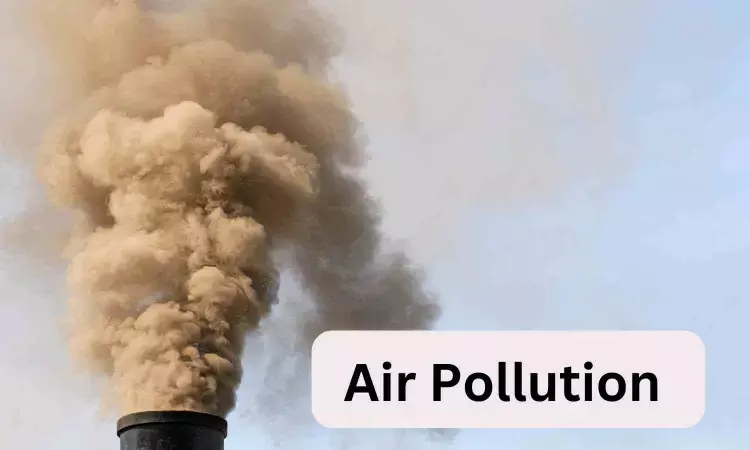- Home
- Medical news & Guidelines
- Anesthesiology
- Cardiology and CTVS
- Critical Care
- Dentistry
- Dermatology
- Diabetes and Endocrinology
- ENT
- Gastroenterology
- Medicine
- Nephrology
- Neurology
- Obstretics-Gynaecology
- Oncology
- Ophthalmology
- Orthopaedics
- Pediatrics-Neonatology
- Psychiatry
- Pulmonology
- Radiology
- Surgery
- Urology
- Laboratory Medicine
- Diet
- Nursing
- Paramedical
- Physiotherapy
- Health news
- Fact Check
- Bone Health Fact Check
- Brain Health Fact Check
- Cancer Related Fact Check
- Child Care Fact Check
- Dental and oral health fact check
- Diabetes and metabolic health fact check
- Diet and Nutrition Fact Check
- Eye and ENT Care Fact Check
- Fitness fact check
- Gut health fact check
- Heart health fact check
- Kidney health fact check
- Medical education fact check
- Men's health fact check
- Respiratory fact check
- Skin and hair care fact check
- Vaccine and Immunization fact check
- Women's health fact check
- AYUSH
- State News
- Andaman and Nicobar Islands
- Andhra Pradesh
- Arunachal Pradesh
- Assam
- Bihar
- Chandigarh
- Chattisgarh
- Dadra and Nagar Haveli
- Daman and Diu
- Delhi
- Goa
- Gujarat
- Haryana
- Himachal Pradesh
- Jammu & Kashmir
- Jharkhand
- Karnataka
- Kerala
- Ladakh
- Lakshadweep
- Madhya Pradesh
- Maharashtra
- Manipur
- Meghalaya
- Mizoram
- Nagaland
- Odisha
- Puducherry
- Punjab
- Rajasthan
- Sikkim
- Tamil Nadu
- Telangana
- Tripura
- Uttar Pradesh
- Uttrakhand
- West Bengal
- Medical Education
- Industry
Long-term exposure to air pollution linked to VTE, finds study

Union Health Ministry Mandates Chest Clinics, Surveillance Amid Severe Air Pollution
A large study found that greater exposure to long-term air pollution was linked with increased risks for blood clots that can occur in deep veins, which, if untreated, can block blood flow and cause serious complications, even death.
These findings came from a longitudinal study funded by the National Institutes of Health (NIH) that included 6,651 U.S. adults who were followed for an average of 17 years between 2000 and 2018. Participants lived in or near one of six major metropolitan areas: New York, Baltimore, Chicago, Los Angeles, Minneapolis, and Winston-Salem, North Carolina.
Throughout the study, 248 adults, 3.7% of the study sample, developed blood clots in deep veins that required hospital care. The likelihood of this outcome was linked to anywhere from a 39% to a more than two-fold increased risk based on long-term exposure to three different types of air pollutants.
Blood clots in deep veins, collectively known as venous thromboembolism (VTE), include deep vein thrombosis, which occurs when a blood clot forms in a deep vein of the legs, arms, or an internal organ, and pulmonary embolism, which occurs when a blood clot breaks off from a deep vein and travels to the lungs.
Exposure to air pollution, which can set the stage for inflammation and contribute to blood clotting, has long been associated with cardiovascular and respiratory diseases. While previous research has also suggested a link to VTE, this is the largest, most comprehensive U.S. study to report that association with three different types of air pollutants.
This included exposure to tiny air pollution particles equal to or less than 2.5 micrometers, which can be inhaled from a variety of sources, including smoke from coal-burning power plants, forest fires, and motor vehicle exhaust. Participants with greater overall exposure to this type of air pollution had a 39% increased associated risk for VTE compared to people exposed to lower levels. People with increased exposure to oxides of nitrogen and nitrogen dioxide, pollutants most often found from vehicle exhaust, had a respective 121% to 174% increased risk.
To reach these findings, the researchers analyzed the relationship between patients hospitalized for VTE and levels of air pollution collected through extensive biweekly community-level monitoring-including samples taken from the homes of participants. They then compared those with the highest exposure levels — the top 75% — to those with the lowest exposure-the bottom 25%. They also conducted multiple analyses to control for variables associated with VTE, such as age, exposure to tobacco, and underlying respiratory and other health conditions.
VTE affects up to 900,000 Americans each year. Many cases occur after surgery, but other factors, including age, long periods of inactivity, heart disease, pregnancy, and genetics, can increase risks.
Reference:
Pamela L Lutsey, Jeffrey R Misialek, Michael T Young, Jesse David Berman, Claire Leiser, Zachary C Pope, Mary Cushman, Aaron R. Folsom, Joel D Kaufman, Air pollution is associated with increased risk of venous thromboembolism: the Multi-Ethnic Study of Atherosclerosis, Blood,https://doi.org/10.1182/blood.2024026399.
Dr Kamal Kant Kohli-MBBS, DTCD- a chest specialist with more than 30 years of practice and a flair for writing clinical articles, Dr Kamal Kant Kohli joined Medical Dialogues as a Chief Editor of Medical News. Besides writing articles, as an editor, he proofreads and verifies all the medical content published on Medical Dialogues including those coming from journals, studies,medical conferences,guidelines etc. Email: drkohli@medicaldialogues.in. Contact no. 011-43720751


